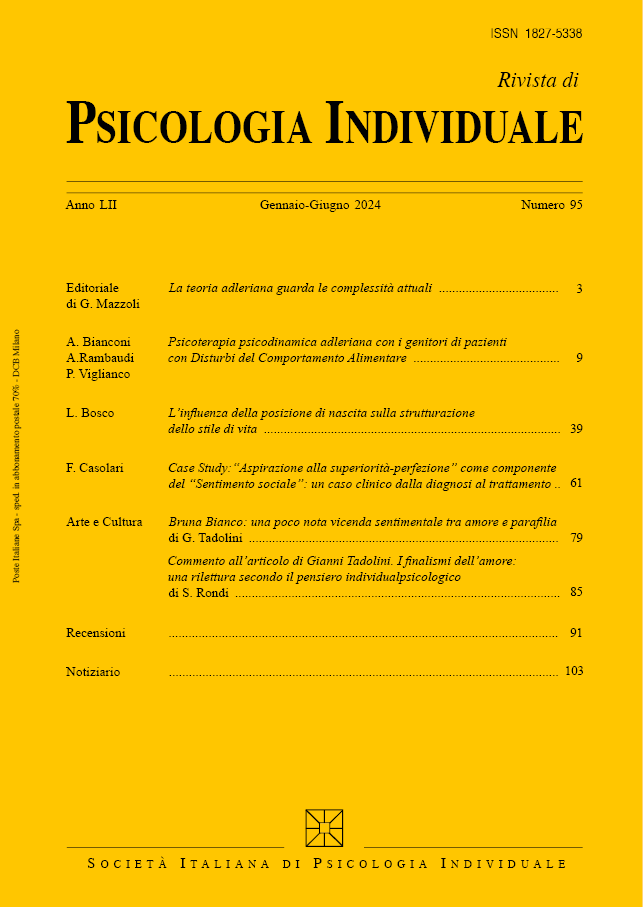Psychological aspects in the presence of dysgraphia and dysorthography
Keywords:
socio-economic conditions, cooperation, dyscalculia, dysgraphia, dyslexia, marginalization, university training of teachers, disability, feelings of inferiority, sense of communityAbstract
During the 1980-81 school year, Dr. Di Summa's psychosocial team, at the request of teachers at a middle school attended by children from Turin's working class, conducted an experiment with children suffering from dyslexia, dysgraphia, dysorthography, and dyscalculia. With the collaboration of three support teachers, three groups of four students were formed. Using psychometric, projective, and specific tests for reading, writing, and arithmetic, the team was able to provide a detailed profile of each student, making it possible to agree on a work plan for the various groups. The teachers, who had not received specific university training, were used to working in a practical way and tended to delegate the management of problem children to experts. They received precise instructions on how to proceed during weekly meetings. The experiment showed that many reading and writing errors were attributable to the use of dialect. Sometimes, children were asked to perform tasks that were beyond their abilities, leading to feelings of inferiority or disturbing and aggressive self-affirming behavior. Punishment only served to further marginalize the individuals. However, their recovery was possible if their sense of community and cooperation could be increased through acceptance. This love, however, is not enough (Bettelheim) if it is not combined with appropriate technical and pedagogical tools






